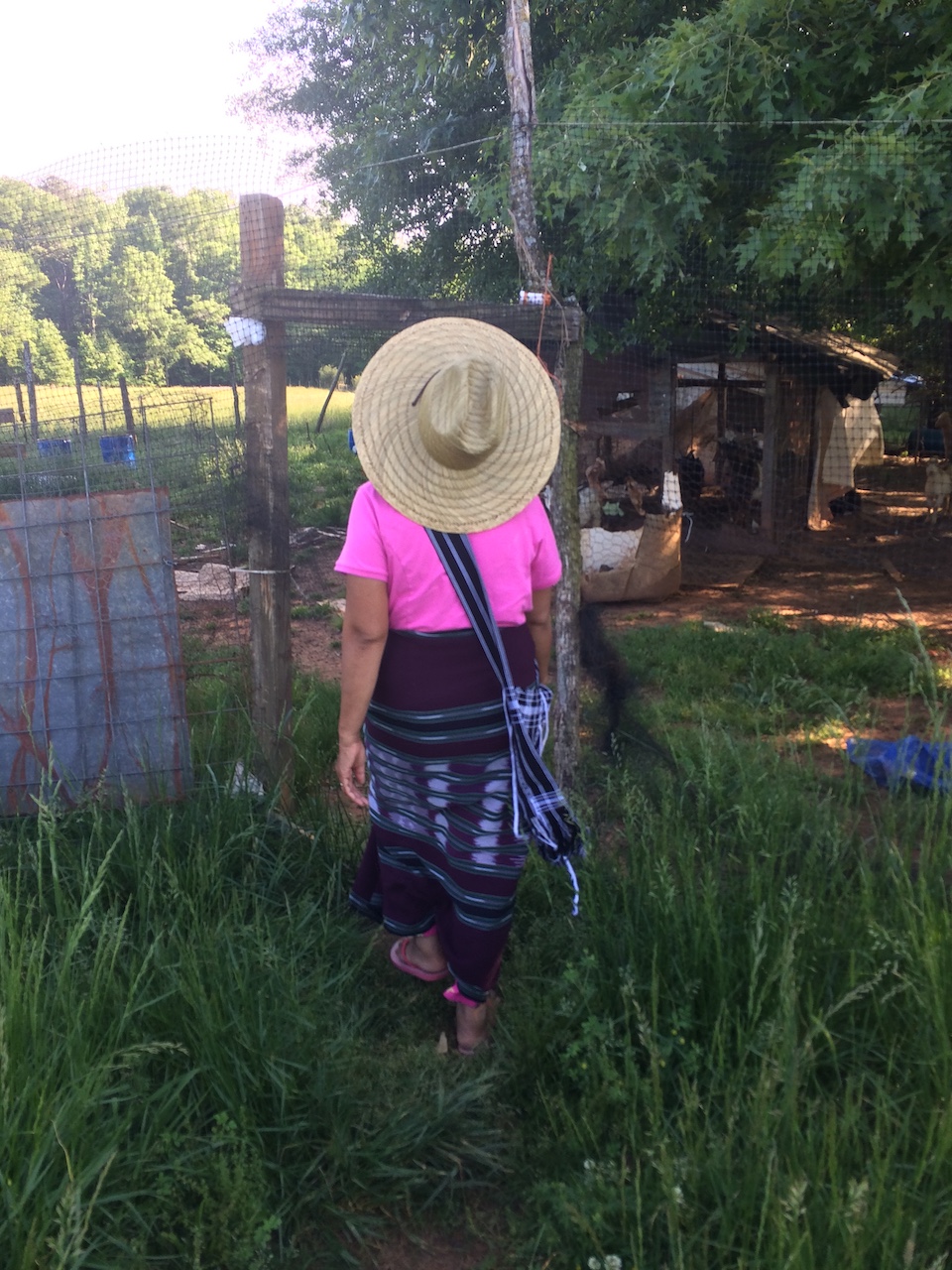
I.Cityscapes slide sidelong
A tumbling profusion
Of mercury green
—Wild, looping, bodacious
Asian tendril and fruit
Consuming, everything in their path
Such as, corner lots
Of belching, behemoth, urban-America
Disappear into a jungle
Of wonder-us
Sounds and smells and textures
As though beckoning, “Enter, if you dare…”
II.Muy Tha (very spicy)
Bee Che Daw (Roselle)
The secret power of Opo Squash
(That big bludgeon)
And, “you wouldn’t believe it really” -long bean
Bitter melon, that comes with a warning and a knowing smile,
“Teacher very bitter!”
You see, our vocabulary is growing
With the fabric of the familiar
Our noses, taste buds
Awakening to the portal of new worlds
Unleashed, a cacophony
Of sensuous verbs
Engulfing us,
Begging us to extend our hand
At the horizon of memory and imagining
We are the ones to touch and be touch
Our bodies, become the landscape
Of the in-between
III.In the belly of the concrete beast
At the heart of so-called power
The margins answer back
Like roots
That crack up pavement
Between pulling up weeds, sharing meals
Sharing stories and landscapes:
Loved ones, house blessings
And children’s birthday parties
A pig is split open, a watermelon consumed
In supreme commensality
A woven dress gifted,
A tree brought in return
Relationships are forged
That knot together geographies, faiths
Languages of knowing and playing
Laboring and loving
There, even when you did not see it
In the midst of hardship
While the wind was whipping sideways (yes then)
Feathery seedpods were being scattered
On loamy, or rocky, or sandy ground
Between the chinks in asphalt
—And we are stunned to wake in the morning
To a carpet of green shoots
Our interbeing
Sprung up in the night
And nourished by a sprinkling of rain
Their space in the world is tentative
As challenges pound down anew, each day
The sixty-hour work week at the chicken plant
New languages to learn, and bills to pay
Matched only by the tenacity of
White roots and vascular cells
That push, in silence,
Outward, upward —and downward
On Sunday afternoon, a catharsis
A traveling inward
To sun ripened drop of yellow hope
The alter of the garden expounds
A testament against the dark attendance
Of a world undone
Evening descends,
As a cacophony of crickets
Huummmmmssss
Enfolding into vibrational vesper
All that surrounds
These poems are about my experiences gardening with, learning from, and forging longstanding relationships with Karen individuals from Southeast Myanmar (Burma) who have been resettled as refugees in the U.S. Over the course of nine years I have spent time getting to know many Karen people in the United States (in Georgia and New York) and, most recently, in a refugee camp in northwest Thailand, and Karen State, Myanmar, during my 16-month ethnographic dissertation research. In 2011 as an undergraduate student of anthropology at the University of Georgia, I began tutoring the children of Karen refugee families who soon became an important and wonderful influence in my life. As I grew to be close friends with these two families in particular, I became increasingly involved in gardening with the mothers. This, in turn, became a research project and thesis that eventually led to my current dissertation project at Syracuse University: tracing collective memory and forgetting transnationally through plants, seeds, gardens and peoples’ life projects within the global Karen diaspora. Through this project I have traveled to multiple continents and spoken with over 100 Karen individuals about their experiences and aspirations.
In particular, the Karen women I first became friends with in Georgia, and who I am still close with, happened to have a great affinity for gardening and readily shared with me stories of their lives both in Burma and in the refugee camp where they had lived for several years, as well as the landscapes of escape in-between. Though these stories encompassed many aspects of their lives, they were often narrated through the language of food and plants. These two poems reflect my emotions and meditations on these shared experiences—colored, as they are by my study of the political, social and affective dimensions of people moving with their plants and agricultural practices, and the transnational landscapes of connection they constitute.
